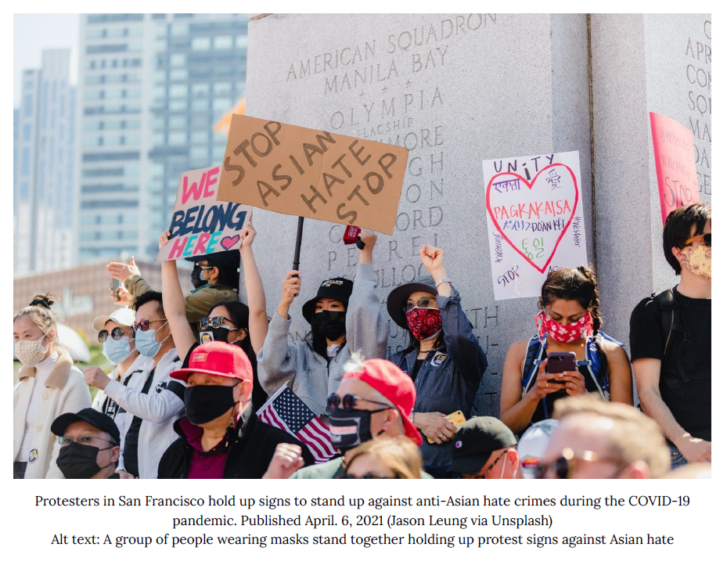Stereotypes played a large role in the anti-Asian hate that the community was faced with during the COVID-19 pandemic, members of the Asian community said.
“I started hearing about this on the news. It’s one of those things where your heart sank and I felt that, ‘oh no, so racism is gonna start again.’ And racism has always been here, it’s just that it will become much more explicit. Racism is like a chameleon. It doesn’t go away, it just changes colour,” said Josephine Wong in a Zoom interview.

Wong holds the positions of Professor and Research Chair in Urban Health in the Daphne Cockwell School of Nursing, Faculty of Community Services, at X University and an activist on Asian hate.
Four members of the Asian community all mentioned the stereotypes of the model minority myth and perpetual foreigner mindset that played into these hate crimes.
“We are seen as a model minority. It’s because people think that, ‘well you’re Asian, you’re just gonna put up with it. You’re not going to fight back, you have always been keeping your heads low, you don’t speak up.’ And so all of those stereotypes make it easier for us to be preyed on and targeted. The cowards who are racist think they can pick on the vulnerable,” said Amy Go in a Zoom interview.
Go is the president of the Chinese Canadian National Council for Social Justice.
“During the pandemic, when Asian people were quiet and silent, they were silent with dignity. They are not just being passive,” said Wong.
Go discussed the term Yellow Peril, which some whites used to refer to Asian settlers in the 1800s. It reflected Aryan fear that the Asian foreigners would taint their race and make it less pure.
She said: “Chinese and Asian-Canadians have always been seen as foreigners. Because of all these perceptions that we are dirty, that we are foreigners, that we bring diseases. So every time there is a pandemic that’s perceived to be connected to Asia or China, we are the ones to be blamed.”
Carolyn Kwan, reception supervisor at a women’s health clinic in Calgary, recounts how this stereotype affected her throughout her life.
“As I was growing up I always heard, ‘why don’t you go back to where you’re from.’ And that’s why I was really disappointed to hear that same thing when I was with my family during the summer. Unfortunately this stuff happens and it’s still happening. The same words are still being used from when I was a kid to now,” said Kwan in a phone interview.
She said how exhausting it feels to not only experience racism herself, but watch her children go through the same experiences.
The interviewees shared the same feelings of fear, hyper awareness, distrust and trauma from the aftermath of these hate crimes.
“Personally I am more aware of my surroundings. When I go out on walks with my children, I feel more protective of them. I just felt like, what if we get attacked?” “There’s that trauma and hyper awareness,” said Dr. Gina Ko in a phone interview. Ko is a registered psychologist in Alberta, instructor at Athabasca University in the master of counselling program, and a podcast host.
Article From: Madelaine Woo
About Madelaine Woo:
Through journalism, I aspire to be able to create connections with people and communities, and tell the stories that might not always be in the spotlight. I believe everybody has a unique story to tell, and should be able to voice it. I also hope to develop my critical thinking and writing techniques through journalism.

